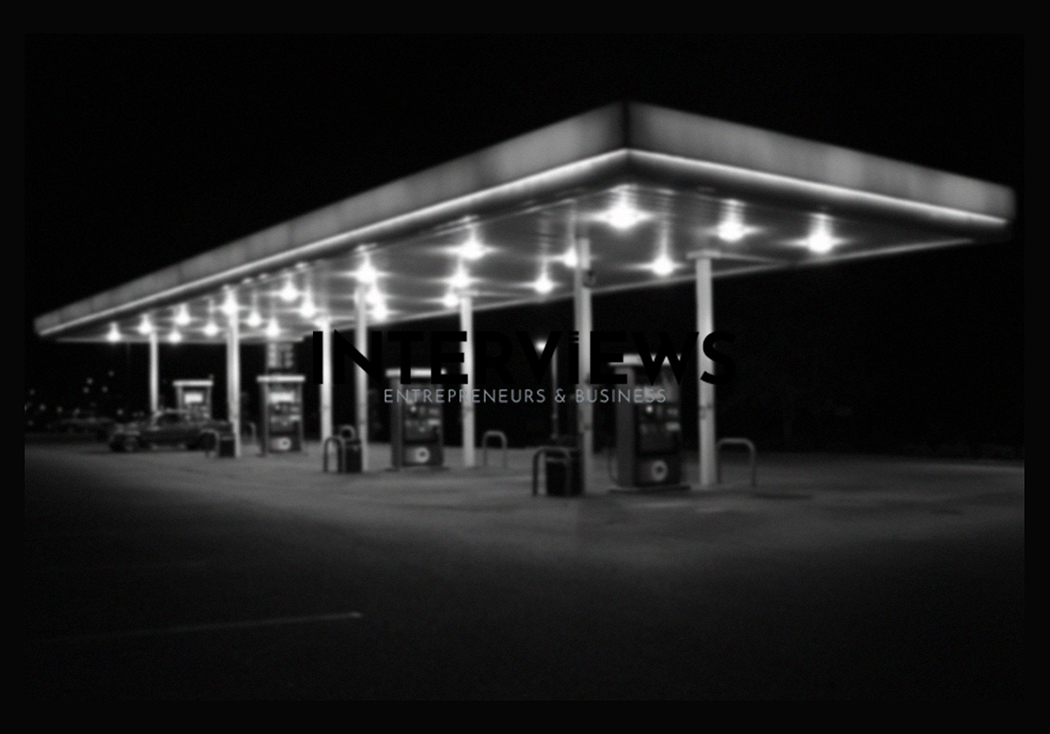Thinking about the gas station business? Pump the brakes. It’s not just about fueling up. Owning this business requires knowledge. Let’s explore buying a gas station. We’ll cover profitability, permits, and more.
Owning a Gas Station: Profitability Breakdown
Let’s discuss money. Is owning a gas station like finding gold? Not really. Fuel profit margins are thin. Expect only 3 to 7 cents per gallon after costs like labor and insurance.
If fuel isn’t the ticket, what is? Your gas station doubles as a convenience store. Convenience store sales are key. Snacks and beverages make real profits. Impulse buys like phone chargers add cash too.
Boost revenue with extras. Car washes can bring in cash, especially in dirty areas. Air pumps generate easy income. If there’s space, add fast food. Hungry travelers will stop.
Location is crucial. Be where cars are. High-traffic areas attract more customers. Busy intersections or freeway exits work well.
You face competition. The gas station market is fierce. You’ll compete with local stations. Theft and inventory management can be headaches. Plus, reliable employees are tough to find.
Watch out for electric vehicles (EVs). The growth of EVs may change the gas station. Charging stations might replace pumps in the future.
Start-Up Costs for a Gas Station
Ready to dive in? Let’s discuss costs. Starting a gas station requires significant cash. Expect to invest $250,000 to $2,000,000. Fancy combos could cost $3 million to $5 million. That’s steep!
Why such a wide price range? Location matters. Downtown Manhattan is pricier than rural Montana. Choosing a franchise or going independent also affects costs.
Where does your money go? Buckle up for this list. Franchise fees, land purchases, equipment, and initial inventory represent significant costs.
Want to join a notable brand? A Shell franchise costs $107,200 to $168,200 to start. Their brand recognition is attractive but pricey.
Specific costs to consider include:
- Gas pump installation: Expected cost is $2,500 to $3,000 per pump.
- Gas station canopy: Costs around $30 to $45 per square foot.
- Opening a BP station? Be ready for around $6 million.
Need financial help? Loans can ease the burden. Banks offer business loans. You may also ask family or friends. Ensure you have a solid plan to convince them.
Requirements for Gas Station Ownership
You have cash now but paperwork awaits. Running a gas station needs many permits and licenses. Here’s a list of what you’ll need:
- Certificate of Occupancy: Proof your building is safe.
- Health Inspection: Crucial if selling food.
- Tank and Pump Inspections: Ensure systems are safe.
- Building and Fire Inspections: Safety is paramount.
- Alcohol, Tobacco, and Lottery Licenses: Required for selling these items.
- Water Discharge Permit: Manage wastewater responsibly.
- Motor Fuel Outlet License: Essential to sell gasoline.
- General Business License: For operating any business.
- Fuel Storage Permits: Permission for large quantities of flammable liquids.
- Environmental Permits: Compliance with regulations.
- Health Department Approvals for Food Services: Extra checks if serving food.
Getting these is challenging. Prepare for bureaucracy and fees. Without permits, you can’t operate.
Investment Insights: Is it Smart?
Is investing in a gas station smart? Gas stations sell essentials. People will always need fuel, even with the electric car trend. There’s a basic demand.
The charm of gas stations lies in multiple revenue streams. You sell gas but also items in the store and more. This diversity acts as security against dips in sales.
Dollars and Cents: Financial Deep Dive
Let’s look at more numbers. Fuel profit margins are low at 3-7 cents per gallon. Convenience store sales are where you find better margins like candy bars and sodas!
Franchise fees create big costs if choosing a brand name. They often range from $25,000 to $100,000 just for one-time fees. Ongoing royalties add to expenses too.
Need funding? Loans can help. Explore bank loans or options from the Small Business Administration (SBA). Avoid mixing personal relationships with business finances; a solid plan is vital for lenders.
Running the Show: Business Operations 101
Managing a gas station involves more than greeting customers. Here’s your operational checklist:
- Business Plan: Create your roadmap for success. Check out NerdWallet for guidelines.
- Location: This choice determines success.
- Funding: Secure funds to start and sustain operations.
- Fuel
- Supplier: You need gas to sell. Secure a gas supplier contract.Find a fuel supplier.
- Vendor Relationships: For your convenience store items. Find vendors for food, drinks, and other goods.
- Business Insurance: Protect yourself from risks. Get business insurance.Protect yourself with business insurance.
- Permits and Licenses: Get your paperwork in order. Obtain necessary permits and licenses.Secure permits and licenses.
- Marketing: Let people know you are open. Market yourself.
Running a gas station demands 24/7 readiness. Gasoline demand never stops. Be prepared for long hours or hire staff for all-day coverage. It’s not a simple 9-to-5 job.
Profitability Numbers: Gas and Beyond
Let’s discuss profit. Gas margins are slim (3-7 cents before). Some sources mention 15-25 cents profit per gallon. Volume counts significantly. One gas station pumps out around 1,404,890 gallons of fuel, generating about $4,774,726 in revenue. Impressive, but expenses lower that number.
A small to medium-sized gas station can net $70,000 to $100,000 annually after expenses. Profitable, but hardly a money-making machine.
The Shrinking Gas Station Landscape
Here’s a sobering thought. Gas station numbers are dropping. They’ve been decreasing for thirty years and will likely continue. BCG predicts that up to a quarter of gas stations may close by 2035 without adaptation. The EV revolution is real.
Big Players in the Gas Game
Who leads the gas station and convenience store market? Love’s Travel Stops & Country Stores dominates, earning nearly $27 billion in 2023, the largest privately-owned company in the sector. Other big names are QuickTrip, RaceTrac, and Wawa, all with high revenues. These brands showcase potential scale but also fierce competition.
Key Takeaways: Gas Station Reality Check
Let’s recap important points:
- Location is King: High-traffic spots are vital.
- Competition is Fierce: Expect to compete for every sale.
- Challenges are Real: Theft, inventory issues, employees – it’s all included.
- The Future is Electric: EVs are emerging. Adapt to avoid obsolescence.
- Franchise or Independent?: Franchises offer brand strength but come with fees. Independents allow more freedom but less recognition. Fransmart can explain franchise opportunities.
- Financing is Available: Loans can help launch your business.
- Multiple Revenue Streams are Key: Don’t depend solely on gas.
- Customer Service Matters: Happy customers return.
- Basic Business Skills are Essential: Learn accounting, management, and industry basics.
Thinking Outside the Pump: Alternative Business Ventures
Gas stations aren’t the only business option. If running one seems challenging, consider these alternatives:
- Technology Services & Software Development: Tech demand is high. Websites, apps, cybersecurity – opportunities abound.
- Real Estate: Property management and investment remain solid fields.
- E-commerce: Online retail continues to expand. Sell products online. Toasttab offers insights on startup costs for alternatives.
- Financial Services: Investment management and insurance require expertise.
- Consulting: Share your knowledge in business or tech.
- Digital Marketing: Help businesses enhance their online presence.
- Fitness Coaching: Health is a priority for many.
- Home Cleaning Services: Everyone needs a clean space; few have time to clean it.
- Event Planning: Planning weddings or corporate events is in demand.
- Auto Repair: Car issues lead to ongoing mechanic needs.
- Pet Care: Pampering pets is a growing market.
- Online Classes/Courses: Teach skills through digital platforms.
Gas Station Quick Facts: Did You Know?
- Most gas stations operate 24/7.
- Gas pump installation costs $2,500 – $3,000 per dispenser.
- A basic gas station can be built in just a few weeks.
- The minimum gas station site size is about 10,000 square feet (quarter acre).
- Many gas stations could convert into EV charging stations by 2035.
Other Paths to Riches: Millionaire Maker Careers (Besides Gas Stations)
Aiming for wealth? Consider these professions:
- Engineer
- Accountant (CPA)
- Teacher
- Management
- Attorney
Other Profitable Business Ideas (That Aren’t Gas Stations)
- Laundromat
- Self-Storage Facility
- Online Education
- Copywriting/Ghostwriting Service
- Parking Lot Management
- Email Marketing Agency
- Online Course Marketplace
- Car Wash
Gas Station Costs in a Nutshell
- Franchise fees range from $25,000-$100,000 (one-time)
Gas Station Profit: Small Station Edition
- A small gas station nets around $70,000 – $100,000 (yearly profit)
Gas Station Size Matters
- The minimum gas station size is 10,000 square feet (quarter acre)
Top Sellers in Gas Station Convenience Stores
- Bottled drinks
- Canned drinks
- Energy beverages
- Snacks
- Beverages
- Essential toiletries
- Tobacco products
- Impulse buy items
- Fuel (volume matters)
Why Indian Immigrants Dominate Gas Station Ownership?
A strong Indian family presence exists in US gas stations. Why? Families pool resources and work jointly, cutting risks. This teamwork boosts efficiency and success in operations.
Why Some Gas Stations Sell Cheaper Gas?
Certain stations offer lower prices due to efficient buying practices. They may have lower costs or secure better deals through larger orders.
Top Oil and Gas Stocks (If You Prefer Investing Over Operating)
If managing a station isn’t appealing, you can invest in oil and gas stocks. Here are top picks:
- TRGP – Targa Resources Corp (Performance: 107.52%)
- WMB – Williams Cos Inc (Performance: 64.97%)
- KMI – Kinder Morgan Inc (Performance: 59.30%)
- BKR – Baker Hughes Co (Performance: 52.65%)
This concludes our overview of the gas station industry. It’s about narrow margins, high volumes, regulations, and market changes. Research well, obtain permits, and fuel your entrepreneurial dreams with a gas station. Remember to offer plenty of snacks.





